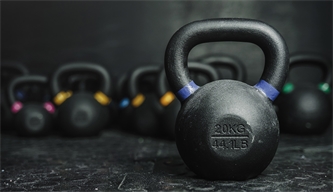16Aug
What is Heart Rate Variability and Why Does it Matter?
With the help of a smart watch or fitness tracker, we’re now able to access more info about our bodies than ever. If you purchased a fitness tracker recently, you probably heard the newer models track something called Heart Rate Variability. If that doesn’t ring any bells, you’re gonna want to keep reading, because it turns out your HRV can tell you a lot. It offers new insight into your physical fitness level and will help you know how ready your body is to perform a difficult physical task—which can help you know whether it should be a “go all out” day or a more restful active recovery day.
And now for the really good news—it turns out your Heart Rate Variability is something you can improve.
So… what is HRV?
To put it super simply, Heart Rate Variability is a measure of the variation in time between each of your heartbeats. That variation is controlled by your autonomic nervous system—the same system that controls your fight-or-flight response.
A normal, healthy heart doesn’t beat evenly like a metronome; when you look at the milliseconds between beats, there are constant variations. HRV is influenced by exercise, hormonal reactions, stress, recovery and more.
Why check your Heart Rate Variability?
If your body’s in more of a fight-or-flight mode, your HRV is low. When you’re more relaxed, the variation between your heartbeats is high. A higher HRV means more resilience and flexibility, and usually means your body will better respond to stressful situations—and tougher workouts. When you have a higher HRV, you know your body is ready to take on new challenges rather than taking a day off to recover.
Checking your HRV is also a great way to see how your body responds when you add healthy habits to your lifestyle—say, adding cardio training to your routine, practicing meditation and mindfulness, or getting a better night’s sleep. You want to see your HRV rise over time.
How to improve your HRV
- Genetics play a big role in Heart Rate Variability, but we can improve our HRV by improving our overall health, fitness levels, stress management and recovery skills.
- Healthy behaviors like hydration, proper nutrition, and high-quality sleep will all positively impact your Heart Rate Variability.
- Consuming alcohol has been found to negatively impact HRV, so cutting back on alcohol will likely help.
- Regular exercise is one of the best ways to improve your HRV. Keep in mind that working out does reduce HRV in the short term, so don’t forget that rest and recovery is important.
About the Author
Related

You’ve probably heard of ways to take care of your body post-workout like stretching or refueling w...
Read More >

If you find yourself staring up at your bedroom ceiling struggling to fall asleep, you’re not alone...
Read More >

Mix up your routine with one (or all!) of these energizing classes that will give you the motivation...
Read More >

Ready to take the intensity up a notch? A “finisher” is an exercise you do at the end of your work...
Read More >

You may have heard the saying, “Failing to prepare is preparing to fail.” Having a plan and taking...
Read More >

Looking to change up your routine? Try a new piece of equipment at the club—like the kettlebell. Ke...
Read More >